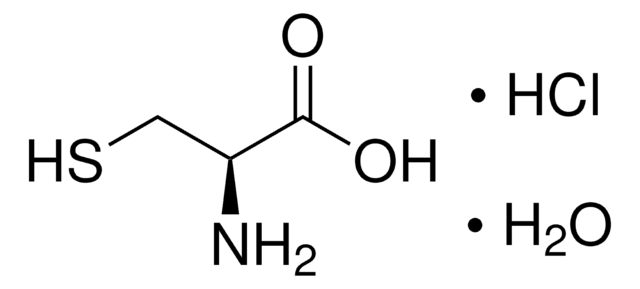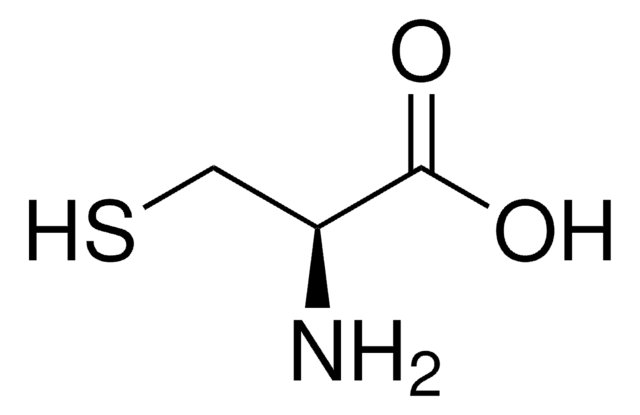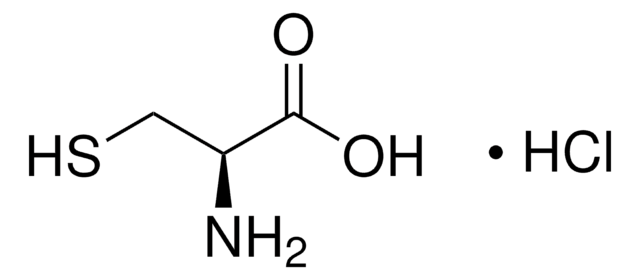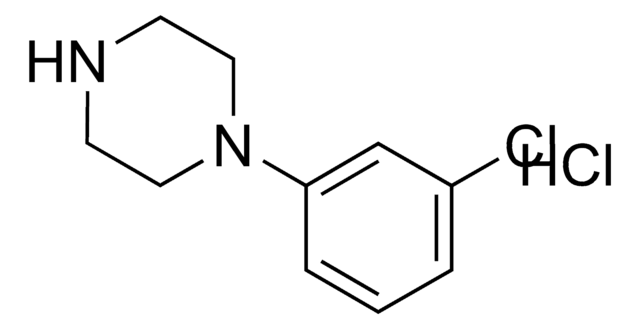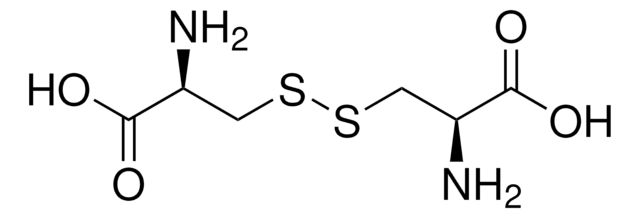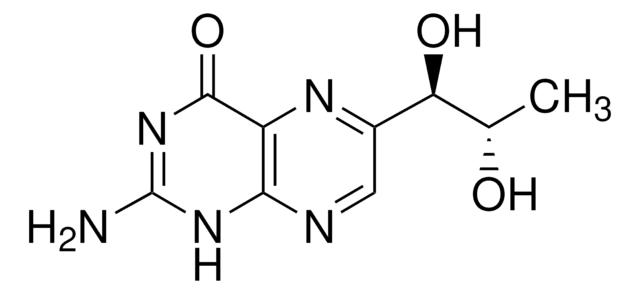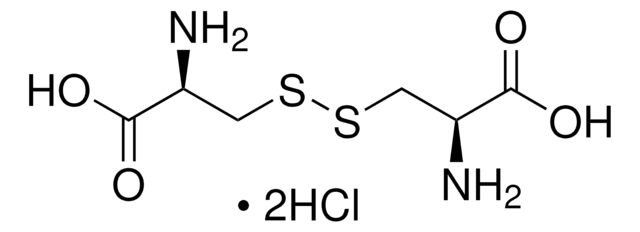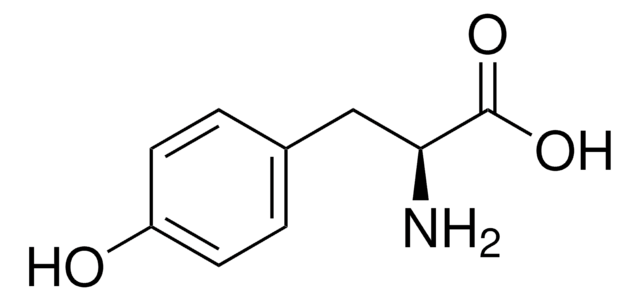C6852
L-Cysteine hydrochloride monohydrate
from non-animal source, suitable for cell culture, meets EP, USP testing specifications
Synonym(s):
L-Cysteine hydrochloride hydrate (1:1:1)
About This Item
Recommended Products
biological source
non-animal source
Quality Level
agency
meets EP testing specifications
meets USP testing specifications
assay
98.5-101.0% dry basis
form
powder or crystals
optical activity
[α]20/D 6.1 to 7.8°, c = 8 in 1 M HCl
[α]25/D 5.7 to 6.8°, c = 8 in HCl (6 N)
technique(s)
cell culture | mammalian: suitable
impurities
endotoxin, tested
color
white
solubility
water: 1 g/10 mL, clear, colorless
cation traces
Fe: ≤10 ppm
NH4+: ≤0.02%
application(s)
pharmaceutical (small molecule)
functional group
(sulfhydryl)
storage temp.
room temp
SMILES string
O.Cl.N[C@@H](CS)C(O)=O
InChI
1S/C3H7NO2S.ClH.H2O/c4-2(1-7)3(5)6;;/h2,7H,1,4H2,(H,5,6);1H;1H2/t2-;;/m0../s1
InChI key
QIJRTFXNRTXDIP-JIZZDEOASA-N
Looking for similar products? Visit Product Comparison Guide
Related Categories
General description
Application
Biochem/physiol Actions
Features and Benefits
- Suitable for Cell Culture and Biochemical research
- High-quality compound suitable for multiple research applications
Other Notes
comparable product
Storage Class
11 - Combustible Solids
wgk_germany
WGK 1
flash_point_f
Not applicable
flash_point_c
Not applicable
ppe
dust mask type N95 (US), Eyeshields, Gloves
Choose from one of the most recent versions:
Certificates of Analysis (COA)
Sorry, we don't have COAs for this product available online at this time.
If you need assistance, please contact Customer Support.
Already Own This Product?
Find documentation for the products that you have recently purchased in the Document Library.
Customers Also Viewed
fragments by third generation intracellular
antibody capture
Articles
Antioxidants protect biological systems from oxidative damage produced by oxygen-containing free radicals and from redoxactive transition metal ions such as iron, copper, and cadmium.
Our team of scientists has experience in all areas of research including Life Science, Material Science, Chemical Synthesis, Chromatography, Analytical and many others.
Contact Technical Service